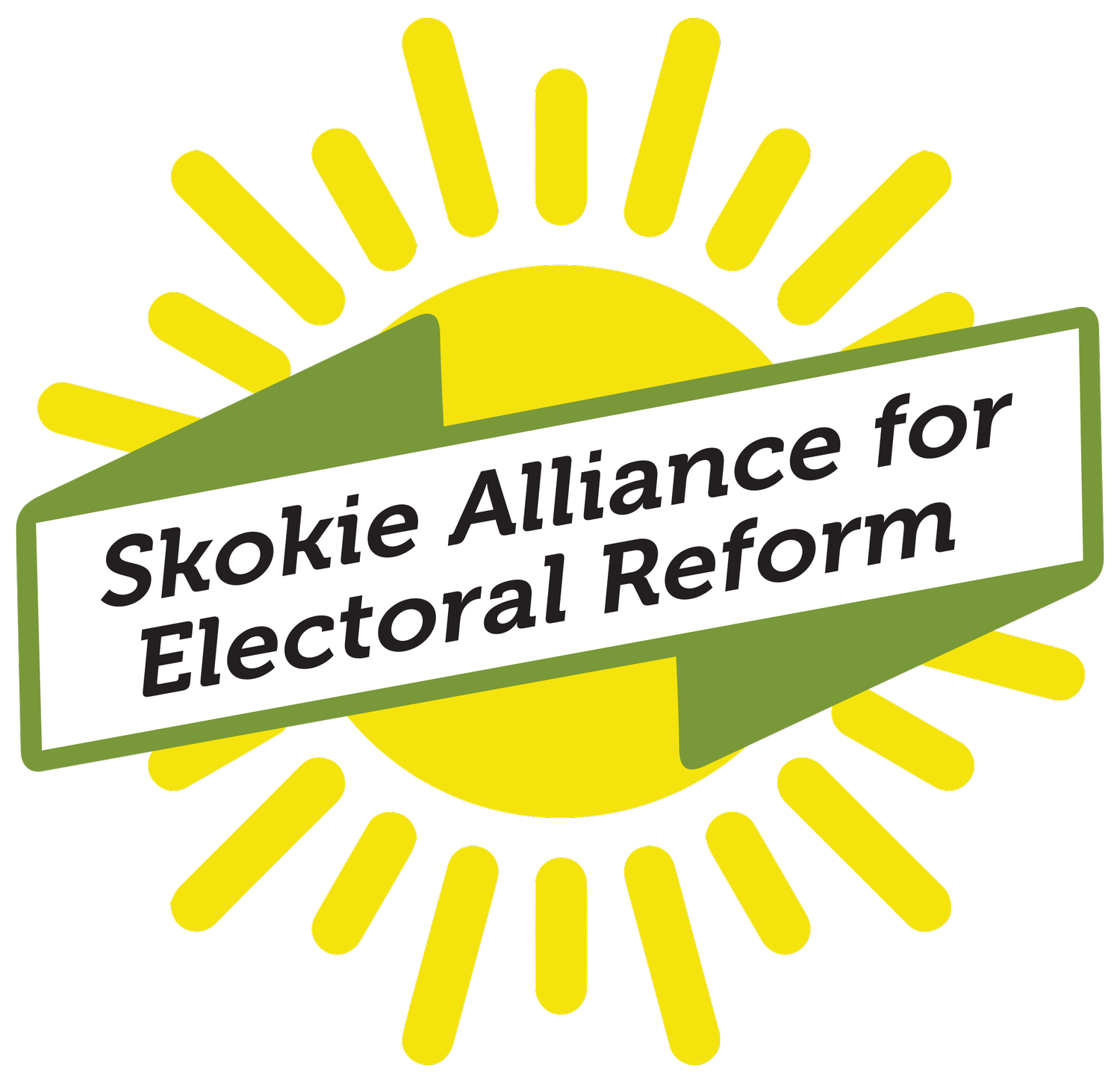Nonpartisan Elections
The Referendum
Shall candidates for Mayor, Clerk, and Village Trustee of the Village of Skokie be elected at nonpartisan primary and general elections, beginning with the Consolidated Primary and the Consolidated General elections to be held on February 25, 2025 and April 1, 2025, respectively?
What is a Nonpartisan Election?
Nonpartisan elections equalize chances for all candidates and reduce the likelihood of one-party rule by eliminating the unfair advantage of preferential ballot positioning (being listed first) previously given to candidates from established political parties. In a nonpartisan election, a candidate’s political party is not listed on the ballot, so voters choose a person not a party.
Why This Matters
Nonpartisan elections remove unfair disadvantages for independent candidates and new parties.
-
Nonpartisan elections remove the unfair advantages given to established party candidates, who were previously able to file their paperwork first and were automatically listed at the top of the ballot. Also known as “preferential ballot positioning,” this feature of partisan elections increases chances of winning for established-party candidates. Learn more about preferential ballot positioning.
Switching to nonpartisan elections in Skokie makes elections more equitable by allowing all candidates to file their paperwork in the same time period, with candidates positioned on the ballot according to the order in which they submit their paperwork (with ties broken by lottery).
Nonpartisan elections decrease the likelihood of one-party rule.
-
Skokie has had one-party rule for over 50 years, something that switching to nonpartisan elections can help change. Listing candidates’ names without party labeling and without top-of-the-ballot positioning will likely reduce straight-ticket voting (voting for an entire slate of candidates from one party).
Nonpartisan elections remove party labels next to Village Board candidates on the ballot, making candidates’ values and qualifications more important than their political party.
-
Nonpartisan elections focus on individual candidates, not their political parties. Without a party label, candidates need to earn votes by explaining their positions and qualifications and meeting with voters to learn about their concerns and perspectives. This change also puts an end to applying the label “Independent” to any and all candidates without a party, no matter how widely their positions may vary. Candidates can still campaign as a slate belonging to a particular party, but that label will not be on the ballot.
